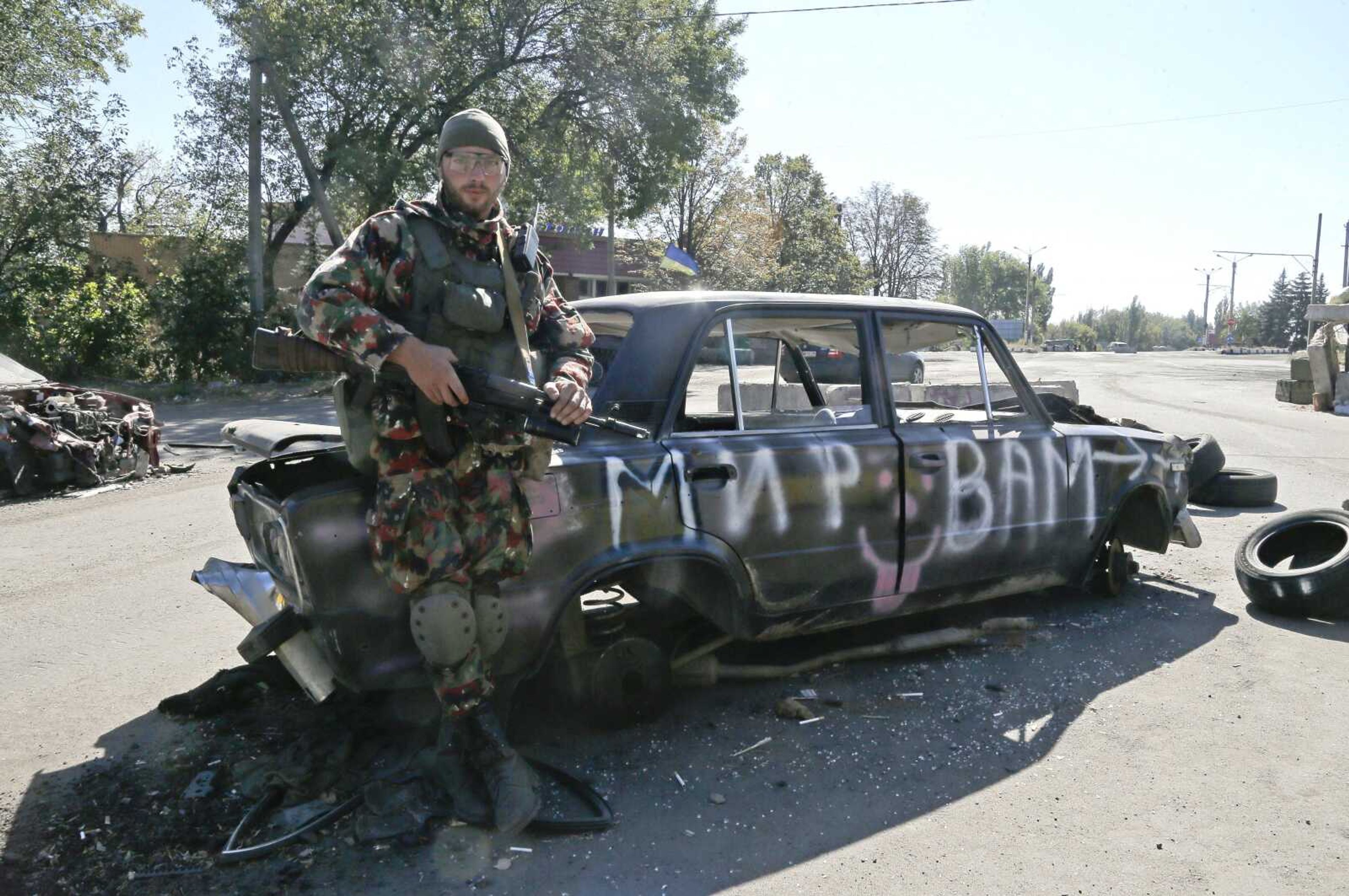Southeast Missouri State University hosts many international students, and some are from the Eastern European country of Ukraine. The conflict between the Ukrainian government and Russia-backed separatists has been going on since February.
Inna Polishchuk and Natasha Berezhanska, two English-education majors, came to Southeast as part of an agreement between the university and their schools in Ukraine. They had already visited Southeast for a month as transfer students last year.
"Because we are going to be English teachers, it is important that we study where English is spoken," Polishchuk said.
A third Ukrainian student, Maryna Titko, is a hospitality-management major. She said the restaurants and hotels in the United States are better than those in Ukraine. She hopes to bring back some American food to make in her family's bakery once she returns.
"Educational systems in the U.S. are able to give me more knowledge than the same major in Ukraine," Titko said.
Polishchuk has already earned her bachelor's degree, and now a graduate student. She and Berezhanska are using this opportunity to hone their English skills, learn how people communicate and observe differences between cultures.
"There aren't that many differences between American and Ukrainian culture," Berezhanska said. "But there are a few peculiarities, like in Ukraine, children live with their families longer than in the U.S. Here you would move out once you become a college student, but in Ukraine, you would stay with your family a little longer or at least live close to them."
Titko said it is difficult to determine differences between American and Ukrainian culture because of the mixture of cultures present in the U.S. This makes it hard to determine if one custom or another is purely American.
The three students all came in from central Ukraine. As a result, they have not been personally affected by the conflict.
Berezhanska compared the matter to how someone in the northern U.S. may know of an event in the South but may have a different view of it.
"In my mind, everything is because of business and political games between countries, and I feel sorry for those people who live in that east part of Ukraine," Polishchuk said. "Some of them have opportunities to leave to the west part of Ukraine. They left everything, their houses, relatives, they just left and started a new page in life. I feel sorry for those people who have no opportunity to go somewhere to live peacefully. Every day they live in fear because they have no idea what will happen tomorrow."
All three of the students have friends fighting in the conflict, while Titko has cousins on the side of the government. As the conflict continues, civilians are struggling to live. At this point, whole cities are without water or electricity. People have been separated from their families. Titko said her home was visited by children looking for a place to stay.
Despite this, Polishchuk said she believes the Ukrainians should find positives in everything. For example, the conflict has united Ukraine under the same flag. Several people gathered in the subway stations in Ukraine's capital, Kiev, to sing traditional Ukrainian hymns, Titko said. In addition, the students have kept in contact with their families, and they are all alive.
"I talk to my family every day over Skype," Titko said. "I also pay attention to both American and Ukrainian news sources, but I only believe what my family tells me. American news does not have the same perspective as those who are actually in Ukraine."
Polishchuk, Berezhanska and Titko all said they hope the conflict will end as soon as possible.
Connect with the Southeast Missourian Newsroom:
For corrections to this story or other insights for the editor, click here. To submit a letter to the editor, click here. To learn about the Southeast Missourian’s AI Policy, click here.







